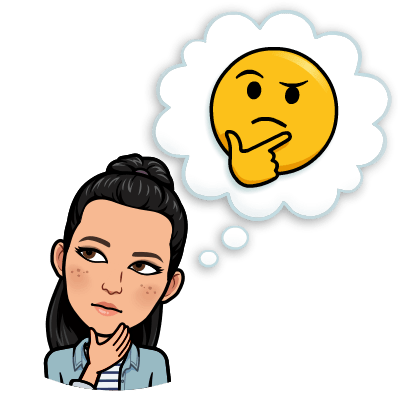In the past few weeks, I’ve been learning more about, and reflecting on the topic of pandemic leadership. What are some mindsets and strategies that might help us navigate the challenges of this crisis? And I wanted to share just a few key reflections and learnings so far.
1. Pandemic leadership across the board.
It’s become very clear to me that we must value and expect leadership from everyone, not just from the top. Every teacher will likely take on a larger degree of autonomy and shared responsibility in navigating the challenges of teaching this year. It’s okay and necessary to rely on one another to share the burden of the incredible amount of problem-solving and innovation that must be done.
“Distributed leadership has become the default leadership (Harris, 2020).”
“Leadership is not a title but an action, a behaviour, a practice, a doing and a way of being, and the current scenario has provided a crucible for teacher agency, agility, resilience and innovation…Teacher leadership…is happening now as teachers work to find teaching and learning solutions for their students within the parameters of their particular national, local, school and classroom contexts. (Netolicky, 2020).”
2. Dump perfection, hold onto flexibility and forgiveness.
“The current disruption to education has schools and education systems considering the humanity of education, rather than its measurable outcomes…In a crisis such as the one in which we are currently existing, perfection is the enemy of progress (Netolicky, 2020).”
I’m a classic case of “paralysis through analysis.” I feel this intense need to perfect every detail of every lesson/activity/project/etc. weeks and months in advance. My tendency is to also expect that same level of quality from others. I don’t think the right approach is to completely forego the high standards we teachers set for ourselves and our students. But, I think we’ve shifted to approaching everyday with flexibility and forgiveness in mind…I won’t be able to plan that far in advance, it’s okay for things to just be “good,” and I need to be kind to myself, my colleagues, and my students when work/focus/etc. doesn’t meet pre-COVID expectations. @kobrien‘s post about getting rid of shoulds really nails it too.
3. Wellness isn’t just a fad.
My fear is that as schools enter into a “groove,” focus will shift back towards teacher/student performance. I think we need to ensure that wellness stays at the forefront for our schools and communities, even once the pandemic is over. Only when I take care of myself can I take care of others.
4. Write a user manual for yourself.
Since opportunities to meet in person are so limited, write a handbook on yourself to help others understand how to best work with you. Add fun facts that help people get to know you. I got this idea from my husband–his company regularly uses this strategy to build trust and authenticity within their remote teams. As an example, here is the Steph Letham Guidebook (she is an amazing math teacher at my school and gave me permission to share this with you all).
5. “Subversion” might be necessary for innovation.
For whatever reason, you might be faced with roadblocks to innovating in ways that are necessary for pandemic teaching. In Cult of Pedagogy’s interview with Melinda Anderson, Anderson states that subversion can be as small an act as finding a resource that really resonates with your students. Her interview touches on how she uses subversion to bring more inclusivity and equity to her classrooms, but also rings very true for our reality right now.
6. Short and frequent check ins.
The more I level with friends, family and colleagues, the more I realize that every. single. one. of us. is struggling somehow. Speaking of time, it’s also at a serious premium right now. But, checking in with colleagues doesn’t have to take long and can make a huge difference. Short, frequent communications with friends, family and colleagues really help me feel like there is continuity to my relationships. When that closeness is retained even through the pandemic, I’ve been able to rely on those relationships to help steer me through my rough days.
That’s all for now! I would love to hear what mindsets or strategies you have found to be or think would be effective right now!
EDIT: I wrote this post before attending yesterday’s webinar with Grant Lichtman. Wow. I walked away with so many more lessons and insights on effective leadership through crisis. If you haven’t already, this is a must watch.


Hi Esther, I finished this and all I could think was how much this felt like an approachable breakdown to a big concept like leadership. I loved the manuals, I think it’s a brilliant way to establish not only boundaries that are needed but also talking points for people who work together.
In terms of mindsets that work for me, I found that the past few weeks I have been forgetting to be present. So taking time every hour or two to just take 3 deep breaths and do the 5-4-3-2-1 activity of things around me helps. I also have been taking more time away from screens and going back to more authentic check-ins like you mentioned.
Thanks so much for sharing this!
Robin, I feel like focused breathing is the most underrated wellness strategy. Yes yes YES, just taking a moment to be present in our breath is so important. Thanks for this reminder 🙂
Thank you for writing about leadership. I just finished getting a little teary reading @monicarand’s post about Robert Carreau. She shared a quote from him where he talks about everyone needing Novembers and rain- meaning we all need to face challenges, and often through these challenges we are reminded of the moments of light and levity. As well, reading Steph Letham’s user manual was a brilliant example of claiming who she is while also helping others learn how to work with her. Many “key nuggets” to learn from here.
What resonated with me, and I think was well supported in our conversation with Grant Lichtman was this: ““The current disruption to education has schools and education systems considering the humanity of education, rather than its measurable outcomes…In a crisis such as the one in which we are currently existing, perfection is the enemy of progress (Netolicky, 2020).”
Thank you so much for breaking this down, and I echo @rgarand comments. Deep breathes.
Thanks,
Garth.
Yes, yes, yes, @elee! I’m trying hard to live this idea you raise to approach each day “with flexibility and forgiveness in mind.” I wonder how other teachers are bringing this powerful concept to life. Many of our school environments are intense with high parent expectations even during Covid. HMW continue to bring done the down the ‘temperature’ in our schools and stay focused on student wellbeing? I echo @rgarand that we always have our breath to help us stay focused and present. We now have weekly employee mindfulness sessions and recently started a lunch walk to promote faculty wellbeing.